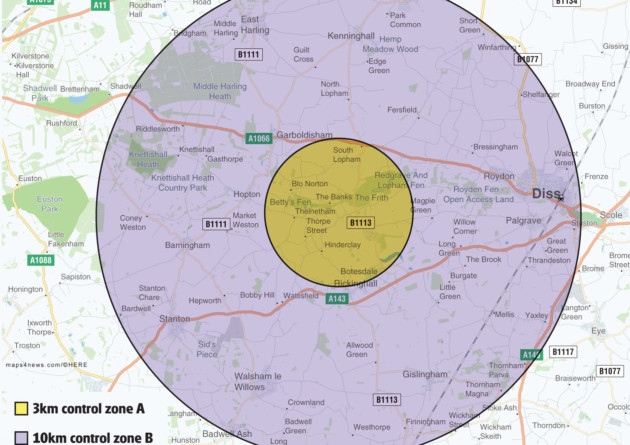About 23,000 birds will be culled after an outbreak of avian flu at Redgrave, Suffolk. This is the ninth UK outbreak in two months.
The affected farm is operated by Banham Group, one of East Anglia’s largest poultry producers. A spokesman for the company said it had one case of avian flu confirmed on February 12. He said the farm was a breeding rearer farm and did not produce meat.
The spokesman added that birds at the group’s other farms appeared healthy and there was no evidence of a spread of infection. “All our staff are trained in biosecurity management and we are ensuring that the controls that are in place are rigorously followed,” he said.
Duck specialists Gressingham Foods, which operates part of its business nearby, has issued a statement to reassure its customers that it has no links with the affected farm.
“In accordance with guidance from Defra, Gressingham Foods has been operating at a heightened level of biosecurity since Autumn 2016 when outbreaks of avian influenza were first found in Europe,” it said. “Since December, when AI reached mainland Britain, we have restricted movement between sites and cancelled all non-essential visits.
“Unfortunately, due to the location of the affected farm, the restriction zone extends around our slaughter plant at Redgrave, therefore all bird movements in this area have been temporarily halted with immediate effect.”
It said it had transferred all production to its headquarters, which are outside the 10km restriction zone imposed by Defra.
An NFU spokesman said the outbreak was “very significant,” as the poultry industry was worth more than £600m to the region. He added that although the business affected would receive compensation for live birds that were culled, owners faced huge costs because of the stringent cleansing and disinfecting that had to follow and which must be carried out under veterinary supervision.
Public Health England says the risk to public health from the virus is “very low” and the Food Standards Agency says that bird flu does not pose a food safety risk for UK consumers.


